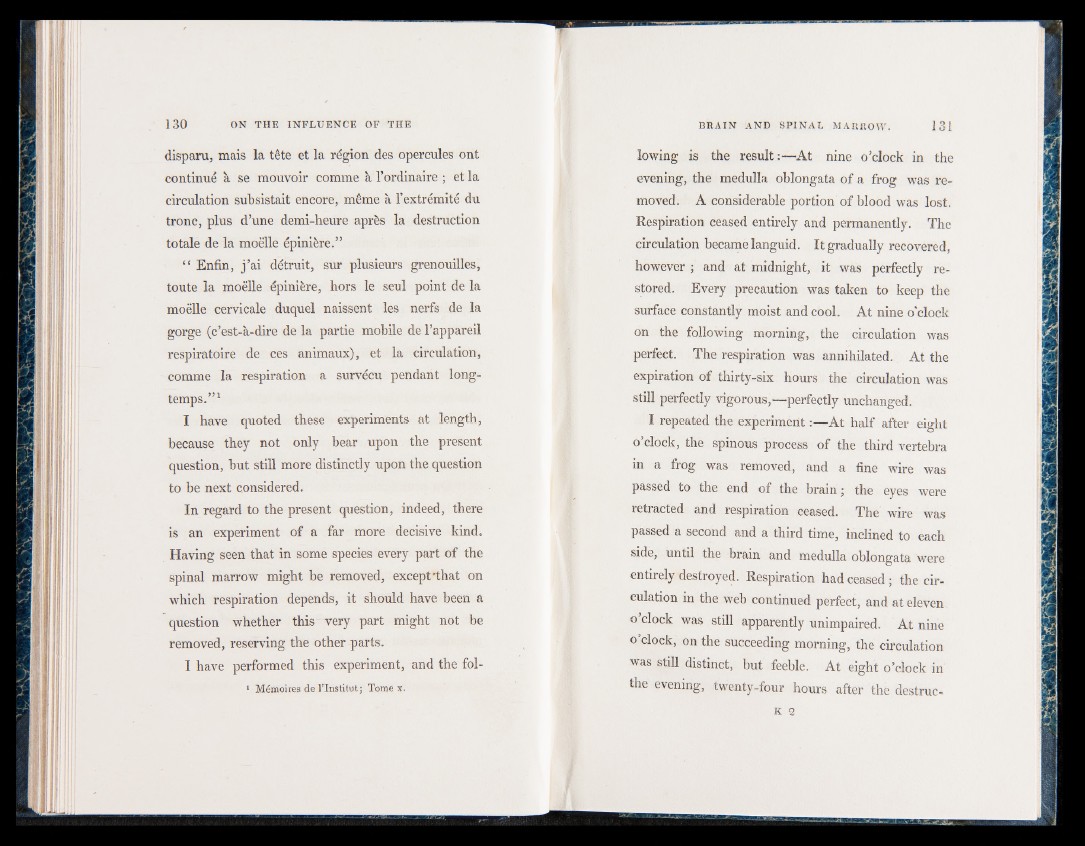
disparu, mais la tête et la région des opercules ont
continué à se mouvoir comme à l’ordinaire ; et la
circulation subsistait encore, même à l’extrémité du
tronc, plus d’une demi-heure après la destruction
totale de la moelle épinière.”
“ Enfin, j’ai détruit, sur plusieurs grenouilles,
toute la moelle épinière, hors le seul point de la
moelle cervicale duquel naissent les nerfs de la
gorge (c’est-à-dire de la partie mobile de l’appareil
respiratoire de ces animaux), et la circulation,
comme la respiration a survécu pendant longtemps.
” 1
I have quoted these experiments at length,
because they not only bear upon the present
question, but still more distinctly upon the question
to be next considered.
In regard to the present question, indeed, there
is an experiment of a far more decisive kind.
Having seen that in some species every part of the
spinal marrow might be removed, except'that on
which respiration depends, it should have been a
question whether this very part might not be
removed, reserving the other parts.
I have performed this experiment, and the fol-
1 Mémoires de l’Institut; Tome x.
lowing is the result :—At nine o’clock in the
evening, the medulla oblongata of a frog was removed.
A considerable portion of blood was lost.
Respiration ceased entirely and permanently. The
circulation became languid. It gradually recovered,
however ; and at midnight, it was perfectly restored.
Every precaution was taken to keep the
surface constantly moist and cool. At nine o’clock
on the following morning, the circulation was
perfect. The respiration was annihilated. At the
expiration of thirty-six hours the circulation was
still perfectly vigorous,—perfectly unchanged.
I repeated the experiment :—At half after eight
o’clock, the spinous process of the third vertebra
in a frog was removed, and a fine wire was
passed to the end of the brain ; the eyes were
retracted and respiration ceased. The wire was
passed a second and a third time, inclined to each
side, until the brain and medulla oblongata were
entirely destroyed. Respiration had ceased ; the circulation
in the web continued perfect, and at eleven
o’clock was still apparently unimpaired. At nine
o clock, on the succeeding morning, the circulation
was still distinct, but feeble. At eight o’clock in
the evening, twenty-four hours after the destruc